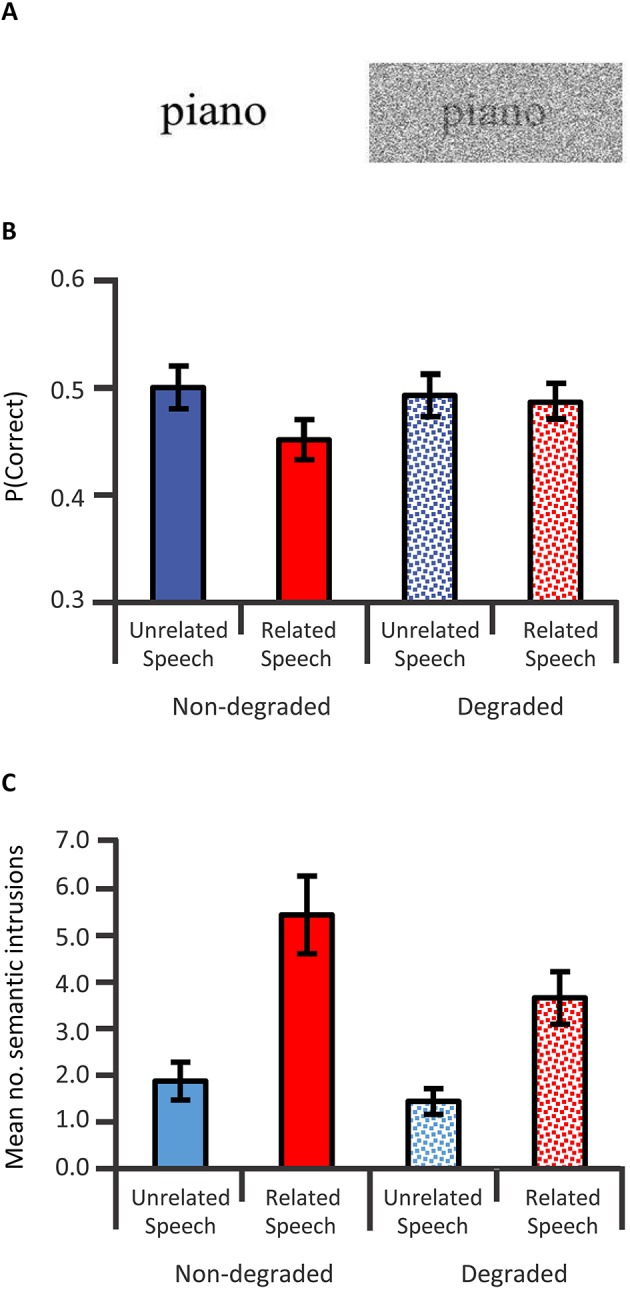Figure 14.

Sensory load attenuates the between-sequence semantic similarity effect. Increasing the sensory load (A) of the to-be-remembered target items (e.g., “chair, desk, wardrobe…”) reduced the influence of the meaning of to-be-ignored speech on WM performance (B): Under such conditions of low sensory load, the semantically related to-be-ignored speech sound (e.g., “table, sofa, bookshelf…”) disrupted recall performance more than semantically unrelated speech (nurse, secretary, carpenter). This increase in load also reduced the influence of semantic relatedness on the number semantic intrusions into recall from the to-be-ignored speech (C). Sensory load thus affects the influence of auditory meaning on cognitive processes, Marsh et al. (2015b: Exp.1); n = 32. Credit: Copyright © 2015 by the American Psychological Association. Adapted with permission from Marsh et al. (2015b). The use of APA information does not imply endorsement by APA.
